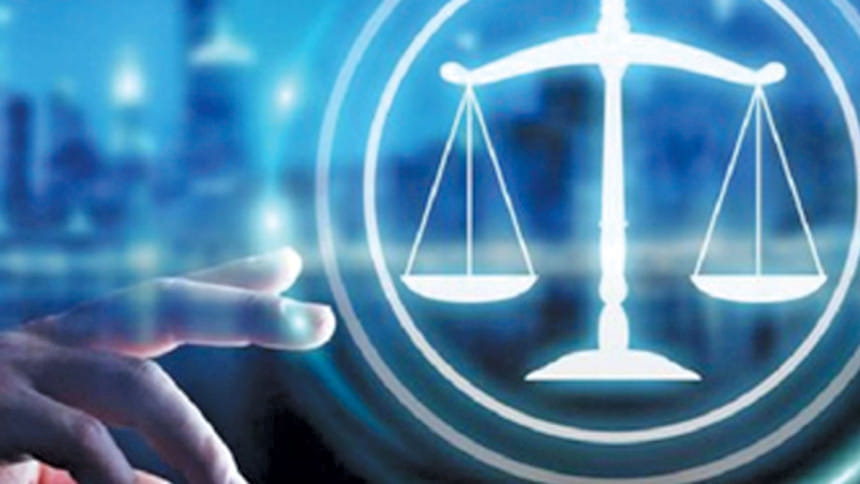e-Judiciary in Bangladesh

The Law Ministry published the gazette notification of the Usage of Information and Technology in Court Ordinance, 2020 following approval from the President in 2020. Subsequently, the Parliament decided to adopt the provisions of the said Ordinance and without any significant change of the provisions under the Ordinance enacting the Adalat Kartrik Tottho-Projukti Bebohar Ain, 2020 (Act No. 11 of 2020). This was a remarkable step for the advancement of e-Judiciary in Bangladesh.
It is not desirable to digitise the whole judicial system overnight. However, the digitalisation of courts in Bangladesh started back in 2009 with the goals of removing backlog of cases, making the justice system swift, ensuring better access to justice, speeding-up disposal of existing cases, reducing stockpile of cases' papers and facilitating the litigation.
The digitalisation of the judiciary can be divided into two parts: structural digitalisation and systematic digitalisation. The government has made remarkable progress in this regard including the development of a web portal for all districts, along with 5 major 'metropolitan' criminal courts; bail orders are now accessed via newly formed 'Bail Confirmation Online Manual'; a socialised cyber tribunal has been established; three aiding apps has been launched by the government's a2i project: Online Cause List, Judicial Monitoring Dashboard, and My Court; a platform www.judiciary.org.bd has been launched with all the judicial service-related information; summary of pending cases are now on the Supreme Court's website; and case updates are now delivered using display boards and push-messages.
The Supreme Court issued practice directives for the Appellate Division, High Court Division and Subordinate courts for conducting proceedings through video conferencing and the judicial magistracy across the country has granted bail to several individuals through virtual hearings. From 11th May to 4th June 2020, in 18 working days, 1,849 applications were disposed of and 1,526 bail petitions on an average had been granted every single day which shows how effective e-Judiciary can be for reducing the backlog of cases. The Law Ministry took a project worth Tk 2,690 crore to establish an e-Judiciary.
Despite the tremendous success of e-Judiciary in Bangladesh, several challenges including the lack of training and technical knowledge of the court officers exists. Hence, complete digitalisation of the records and proceedings of the courts is needed. The lack of quality infrastructure, i.e., power shortage, low bandwidth, lack of broadband connection, lack of computer facilities is also a big issue. Problems such as inconsistency with the concept of open court which ensures the right to fair trial guaranteed under article 35(3) of the Constitution also persist. Use of technology has a high risk of being hacked, distorted or misused and there is still a lack of enough cyber-security measures to handle this kind of sensitive documents. Moreover, the main laws such as the Evidence Act, 1872, the Code of Civil procedure, 1908 and the Code of Criminal Procedure, 1989 must be amended making parallel and up to date with the e-Judicial system.
The more difficult task for overcoming the challenges of the e-Judiciary is its implementation in root level. The United Nations Development Programme (UNDP), in association with The Daily Star, organised a roundtable titled 'Digital transformation in justice system in Bangladesh' on June 14, 2022 where the expert panellists provided their valuable recommendations including awareness campaigns for making people aware of the benefits of e-Judiciary, ensure access of marginalised people to the digital justice system, provide training to the court officers, separate ICT department and storage division for the judiciary, integration of different databases such as land records and CDMS with the MyCourt app, digitalisation in Bar Council and Bar Associations, data protection and the right to privacy and security deserve special attention specially for women, children and victims of rape or sexual harassment.
The Writer is an Official Contributor, Law Desk, The Daily Star.

 For all latest news, follow The Daily Star's Google News channel.
For all latest news, follow The Daily Star's Google News channel. 



Comments